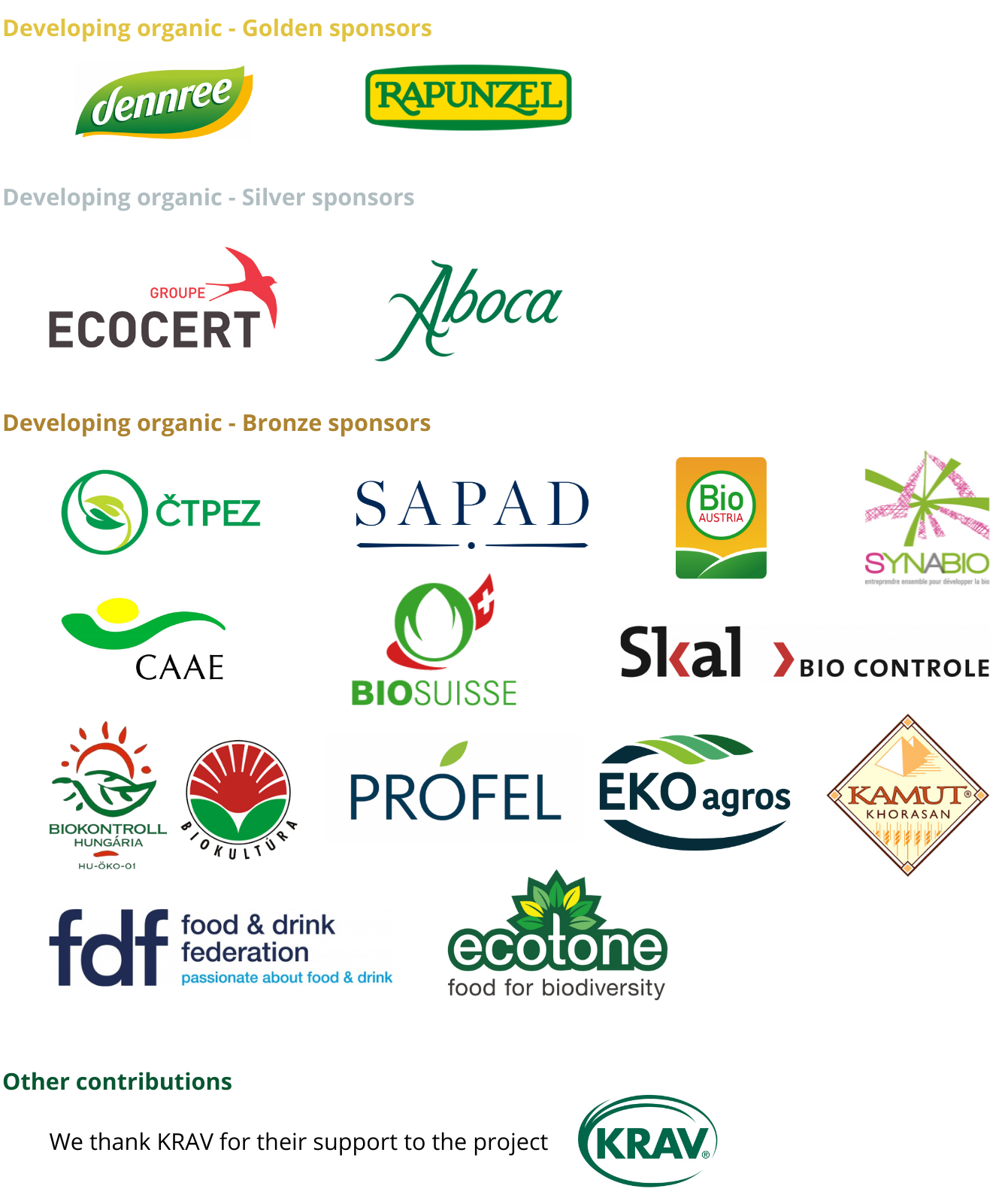Fill in our survey on pesticide residues in organic for a better and more harmonized future legal framework
The new EU Organic Regulation (EU) 2018/848 will enter into application in a few months, and there will not be a full harmonization of management of pesticide residues.
Provide your input to contribute to a better future legal framework! Share this survey with the person in charge of quality management in your organisation. Please consider that this survey:
- Is targeted to farmers, processors, traders, retailers, control bodies and authorities, competent authorities
- Is limited to residues in plant-based products (including mushrooms)
- Is anonymous,
- Will take less than one hour,
- Can be put on hold and resumed in a later moment,
- Should be done by midnight of 20 September 2021,
- Is available in 8 different EU languages, and
- The benefits for your organisations and all organic stakeholders might be huge!
After you have filled out the survey, please circulate it among your members or networks.
Background
The new EU Organic Regulation (EU) 2018/848 will enter into application in a few months, and there will not be a full harmonization of management of pesticide residues. This might lead to potential problems in the trade of organic products within the EU and between the EU and Third Countries, due to the different approaches in the different Member States.
According to the new Organic Regulation, a new legislative proposal on the management of residues in organic might be presented in 2024-2025.
IFOAM Organics Europe wants to be ready in advance and present a proposal for harmonization already in 2022. We want to present a proposal supported by the entire organic sector and movement.
What IFOAM Organics Europe is doing
To ensure our proposal is one of the organic sector and movement, we started ‘Developing Organic: Pesticide use and contamination’, a project on pesticide residues in organic products, at the end of 2020, with the contribution of a good number of sponsors. Our scientific partner is FiBL, the world’s leading research institute in the field of organic farming.
The project consists of four pillars. The first two are scientific and based on research and collection of data, the 3rd and 4th pillars relate to advocacy activities towards the EU Institutions:
- Understanding the presence of pesticide residues in the environment (soil, air, water) and in the agri-food supply chain. A scientific report is being produced. The aim is to have a clear picture on the context organic farmers and operators work in;
- Understanding how Competent Authorities, Control Bodies and organic operators manage residues today. A report will be produced;
- Discussion with all the stakeholders and production of a proposal to the EU Institutions on how to manage residues in organic products;
- Advocacy work on the horizontal legislation, in a way that it properly considers organic production.
We would like to stress that the outcomes of this project will be beneficial to everyone, and our intention is to exchange with all stakeholders before finalising the proposal to be presented to the EU institutions. The more data we have, the more credible we will be when presenting our position to policymakers.
What data do you need to be able to fill it up?
- General information about the organisation your work for
- Country,
- Size (number of employers),
- Tipology of activities and products,
- % of organic.
- Internal procedures on how to deal with residues in organic products:
- Thresholds for actions,
- Notifications,
- Use of downgraded products,
- Records,
- Residues searched and on which criteria.
- Information on National legislation, interpretations or guidelines on how to deal with residues in organic products
- Data on residues found on up to three products (in organic and, if relevant and available, in conventional). For each selected product, the questions will be on:
- Quantity and Number of lots involved,
- Country of origin,
- Number of samples taken,
- Results,
- Tipology and amount of residues,
- Reason of presence (if known),
- If it was downgraded or not,
- Value.
- Your opinion on the current system and your preferences for the future system.
We thank our sponsors


